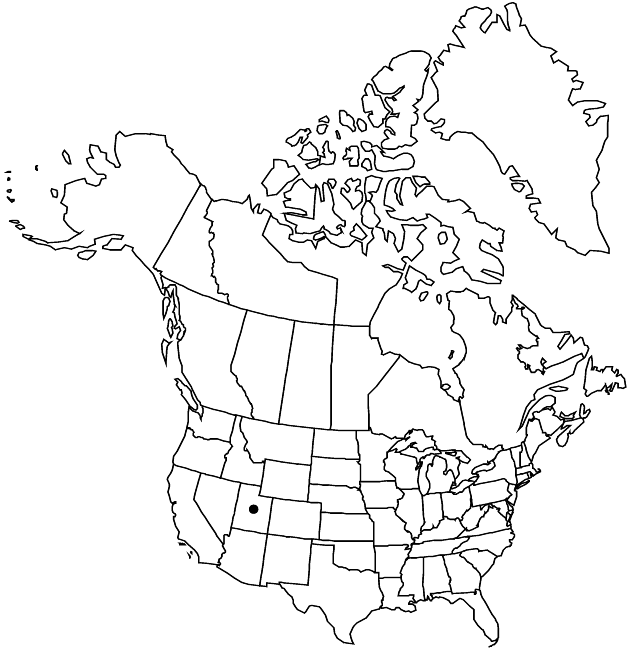Difference between revisions of "Erigeron mancus"
Fl. Rocky Mts., 902, 1067. 1917.
imported>Volume Importer |
imported>Volume Importer |
||
| Line 58: | Line 58: | ||
|publication year=1917 | |publication year=1917 | ||
|special status=Endemic;Conservation concern | |special status=Endemic;Conservation concern | ||
| − | |source xml=https:// | + | |source xml=https://bitbucket.org/aafc-mbb/fna-data-curation/src/2e0870ddd59836b60bcf96646a41e87ea5a5943a/coarse_grained_fna_xml/V19-20-21/V20_677.xml |
|tribe=Asteraceae tribe Astereae | |tribe=Asteraceae tribe Astereae | ||
|genus=Erigeron | |genus=Erigeron | ||
Latest revision as of 20:04, 5 November 2020
Perennials 2–7 cm; taprooted, caudex branches usually relatively thick, woody. Stems erect, sparsely to moderately hispidulous and minutely glandular, sometimes merely glandular. Leaves mostly basal and proximal cauline (persistent); basal blades spatulate (often folding), 12–40 × 2–4 mm, margins pinnatifid (lobes linear), faces glabrate or sometimes sparsely hirsute, usually minutely glandular; cauline mostly linear, reduced and bractlike, margins entire, usually coarsely ciliate. Heads (discoid) 1. Involucres 5–6.5 × 7–12 mm. Phyllaries in 3–5 series, hirsuto-villous, minutely glandular. Ray (pistillate) florets 0. Disc corollas 3.8–4.5 mm. Cypselae ca. 2.2 mm, 2-nerved, faces sparsely strigose; pappi: outer of setae, inner of 20–30 bristles.
Phenology: Flowering Jun–Jul.
Habitat: Rocky slopes, boulder fields, ridge tops, alpine meadows, openings in subalpine fir
Elevation: 3000–3800 m
Discussion
Of conservation concern.
Selected References
None.
